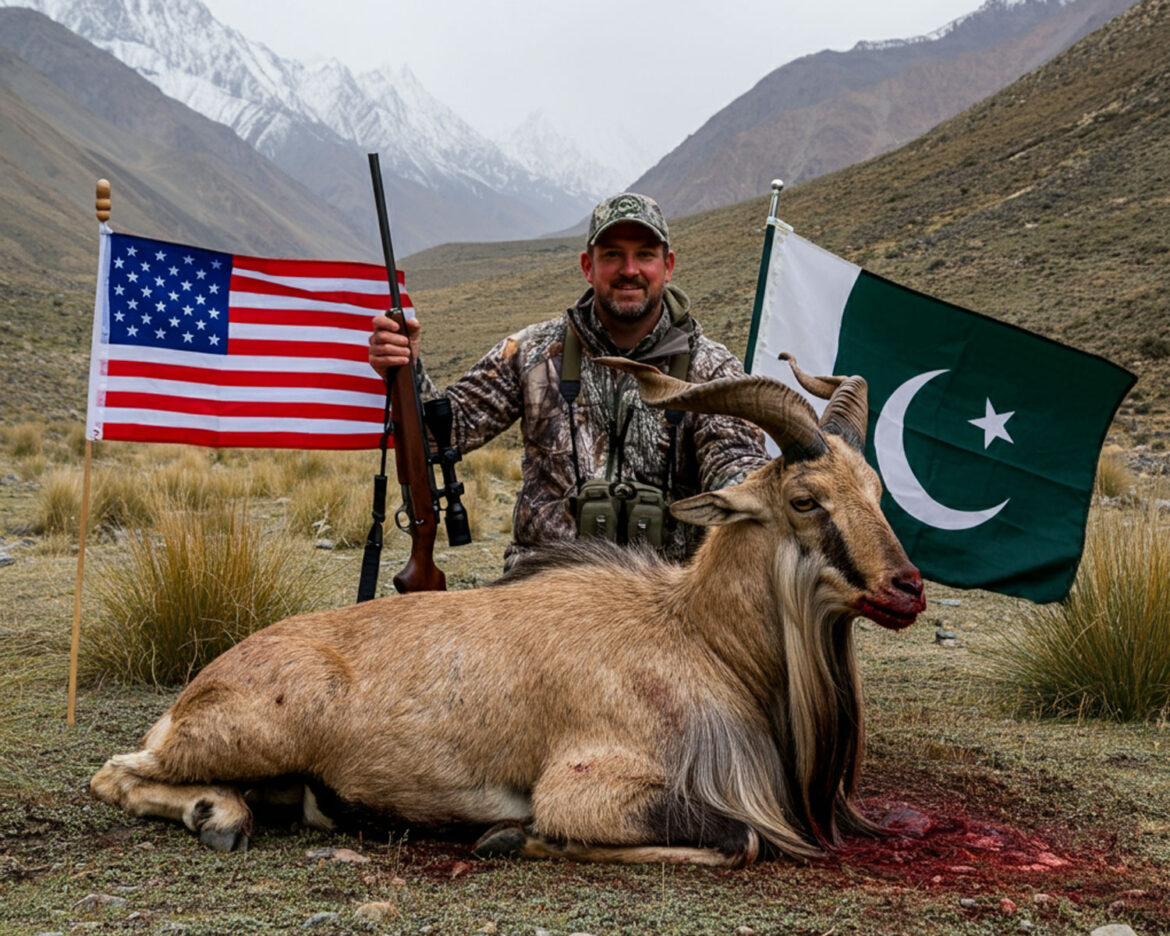A recent hunting incident involving an American hunter killing Pakistan’s national animal, the Markhor, has sparked widespread outrage and raised serious concerns about wildlife conservation in the country. The Markhor, a wild goat species native to the mountainous regions of northern Pakistan, is considered an endangered species and is protected under both national and international conservation laws.
The incident occurred in the Gilgit-Baltistan region, where the hunter, reportedly an American citizen, was granted a hunting permit through a controversial government-sanctioned program that allows trophy hunting of certain species.
While trophy hunting is legal in Pakistan under strict regulations, including the payment of hefty fees and adherence to a quota system, critics argue that the practice contributes to the decline of endangered species and promotes an unethical approach to conservation.
Conservationists and animal rights activists have expressed outrage over the incident, calling for an immediate review of hunting policies. “The Markhor is a symbol of Pakistan’s natural heritage and should be protected, not hunted for sport,” said Dr. Zara Khan, a wildlife conservationist. “This incident underscores the need for stronger regulations to protect endangered wildlife in our country.”
The Pakistani government has defended the hunting program, stating that the revenue generated from trophy hunting permits is used to fund conservation efforts and support local communities in the hunting areas. However, many argue that this financial incentive does not outweigh the long-term ecological harm caused by hunting.
The death of the Markhor has reignited debates over the ethics of trophy hunting and the role of conservation efforts in Pakistan. Environmentalists are calling for an immediate halt to trophy hunting of endangered species and for a greater emphasis on habitat protection and sustainable conservation practices.



